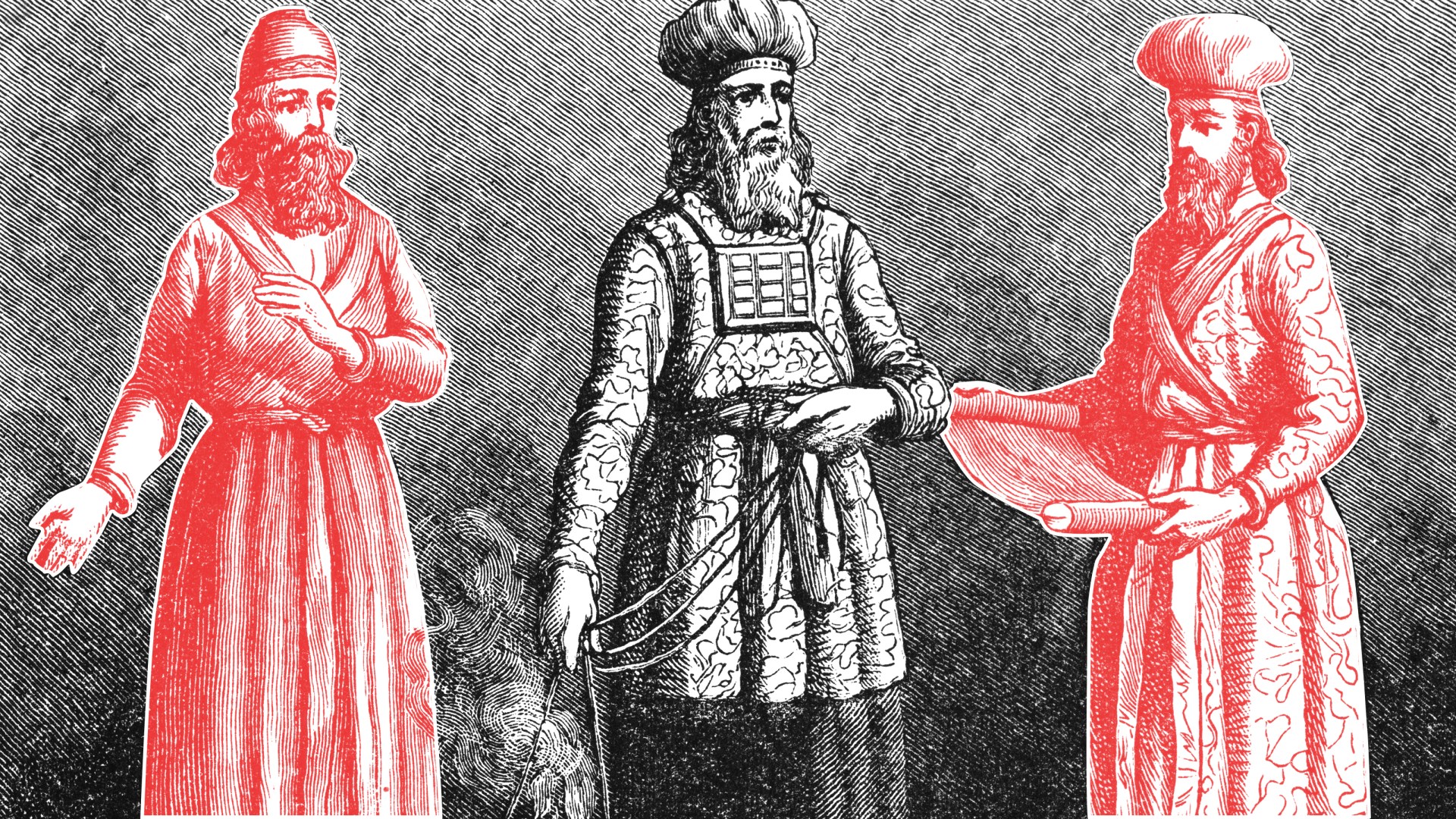It’s been a bad year for pastoral scandals in the church. Whether Roman Catholic cardinals or high-profile Protestant pastors, it’s been devastating and sobering to read about sins and abuses by those entrusted to preach the gospel and shepherd God’s people.
Besides the horror of the abuses themselves, the sharp contrast between an outwardly successful ministry and the apparent darkness within is deeply discouraging. If our spiritual leaders cannot be trusted, who can?
I’m reminded of the shocking deaths of Nadab and Abihu by divine fire in Leviticus 10. At this point in the Hebrews’ journey to the Promised Land, things are going swimmingly. The Tabernacle is built. Moses has the instructions for the sacrifices. Aaron and his sons are being consecrated for ministry. On cue, God’s glory appears, and fire consumes the burnt offering; the people are overjoyed (Lev. 9:24). But that joy suddenly turns to shock and sorrow when Aaron’s sons try to offer up fire to the Lord—and flames burst forth and consume them instead (10:1–2).
Most read this and naturally balk, asking, “Why is God so harsh? Isn’t this just another sign of an arbitrary, angry, erratic God?”
The natural question isn’t always the right one, especially when taking the whole narrative context into account. This is the merciful God who redeemed Israel from Egypt, met them at Sinai, gave the covenant Law, forgave their infidelity with the golden calf, and instituted the priesthood and sacrifices precisely so sinful Israel could enjoy his holy Presence. We should ponder instead, “What went wrong?”
Leviticus is light on explanation, but there are a few narrative clues. For one, the fire is described as “strange” or “unauthorized.” Some commentators think the sons carelessly took coals from the wrong source, while others claim they insinuated a pagan ritual into the worship of the Lord.
Additionally, others notice parallels between the description of Nadab and Abihu’s transgression and Aaron’s entrance into the Holy of Holies on the Day of Atonement, suggesting they were trying to enter the Presence of God without sanction.
Further, right after their death, God gives Aaron strict instructions that he and his sons should not drink alcohol before entering his presence. Perhaps their folly was fueled by strong drink?
Most importantly, unlike every other previous ritual act, their offering is explicitly described as “not commanded” by God. Immediately afterward, Moses reminds Aaron that the Lord says, “Among those who approach me I will be proved holy; in the sight of all the people I will be honored” (Lev 10:3). Whatever Nadab and Abihu were doing, it’s revealed to be presumptuous, flagrant, and contemptuous of God’s awesome holiness.
What is stunning is that this episode immediately follows the Lord accepting the initial offering. How can somebody with a front-row seat to God’s burning glory be so arrogant? It’s almost as if the success itself provoked the failure—they believed themselves “too big to fail.”
This is a warning to those of us in ministry: If we mistake God’s grace at work with our own efficacy or holiness, presumption naturally follows. Success blinds us to our own sin and need to fear the Lord. We show contempt for God and treat his holy things without care—even the ransomed and sanctified souls under our charge.
Aaron’s response is also instructive. He is silent. Despite personal grief, he doesn’t question God nor defend his sons. His responsibility as priest to God for the people is primary (Lev. 10:3–7).
Reflecting on this story is not only a matter of fear and trembling, though. Remember, Nadab and Abihu are judged in the middle of instituting the Tabernacle/Temple system, disrupting the whole process. The people of God have always needed more than the old sacrificial system, dependent on sinful, mortal human priests (Heb. 8:6). It’s always been clear God would have to do “what the law was powerless to do because it was weakened by the flesh” (Rom. 8:3).
And that’s exactly what he has done by giving us the Son, who became a high priest who “truly meets our need—one who is holy, blameless, pure, set apart from sinners, exalted above the heavens” (Heb. 7:26). With him there is no failure or hidden sin. This is the mediator, the pastor, the minister of a better covenant we can trust in every season.
Derek Rishmawy is a doctoral candidate at Trinity Evangelical Divinity School.
Have something to say about this topic? Let us know here.










